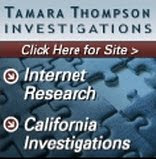A jury,” Mark Twain observed, “is comprised of twelve persons of average ignorance chosen to decide who hired the better lawyer.” Yes. True. We want our juries to start out ignorant of the facts, so that they will decide the case on the facts actually in evidence, not on facts that they learn from independent research, because “extra-record influences pose a substantial threat to the fairness of the...proceeding because the extraneous information completely evades the safeguards of the judicial process.” U.S. v. Resko, 3 F.3d 684, 690 (3d Cir. 1993).Read more at The National Law Journal
But how do we ensure that? Our columns on this page during the past 10-plus years have focused on discovery—the discovery we take as lawyers. But at a recent continuing legal education program created by our friend Phil Kessler for the American College of Trial Lawyers, we were hit smack up the side of our face with a troubling thought that had not occurred to us: The lawyers aren’t the only ones doing discovery. Jurors have the tools—and they are using them— to discover all sorts of things about us, about our cases, about our witnesses. The information age makes finding those 12 ignorant persons—and keeping them ignorant—a daunting and maybe impossible task.
A juror doing outside research is not a new phenomenon. In Fitzpatrick v. Allen, 410 Mass. 791 (1991), the court ordered a new trial when it was learned that a juror had brought a medical reference book into the jury room in a medical malpractice case. In the classic 1957 movie Twelve Angry Men, the state had argued—without contrary evidence—that the defendant was known to have owned the relatively unique murder weapon, a switchblade stiletto. Unique? Henry Fonda neatly persuaded his fellow jurors otherwise by reaching into his pocket and plunging an identical knife into the table.
The concept hasn’t changed, but, boy, have the times and means. Not so easy to bring a knife into a courthouse anymore. But weapons aside, the access that the average juror has to information may have multiplied beyond our practical ability to prevent.
Location Oakland, Ca - Private Investigator




